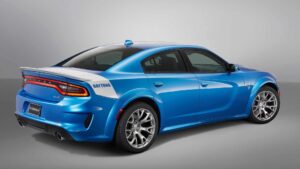Looking for the best car battery to ensure a smooth and reliable ride? Look no further! In this blog article, we will delve into the world of car batteries and help you determine which one is better suited for your needs. Whether you’re a seasoned driver or a newcomer to the world of automobiles, choosing the right battery can make all the difference in your driving experience. So, let’s dive in and explore the factors that influence the performance and lifespan of car batteries, guiding you towards the answer to the age-old question: which car battery is better?
Which Car Battery is Better?
When it comes to your car’s battery, choosing the right one is crucial for optimal performance and reliability. With a wide range of options available, it can be overwhelming to determine which car battery is better suited for your specific vehicle. In this article, we’ll explore the key factors to consider when selecting a car battery and compare the two main types: conventional and maintenance-free batteries.
Conventional Car Batteries
Conventional car batteries have been around for decades and are still widely used in many vehicles today. These batteries consist of six individual cells filled with sulfuric acid electrolyte and lead plates. Here are some key points to consider when evaluating conventional car batteries:
- Affordability: Conventional car batteries tend to be more affordable compared to maintenance-free options.
- Longevity: While conventional batteries can provide reliable performance, their lifespan is generally shorter compared to maintenance-free batteries.
- Maintenance Requirements: These batteries require regular maintenance, including checking and topping up the electrolyte levels, which can be time-consuming.
- Performance in Extreme Temperatures: Conventional batteries may struggle to deliver optimal performance in extreme temperatures, especially in colder climates.
Maintenance-Free Car Batteries
Maintenance-free car batteries, also known as sealed batteries, have gained popularity in recent years. They are designed to be more convenient and hassle-free compared to conventional batteries. Here’s what you need to know about maintenance-free car batteries:
- Sealed Design: Maintenance-free batteries are sealed, which means they don’t require any electrolyte level checks or top-ups. This feature eliminates the risk of corrosive acid spills and makes them easier to handle.
- Longer Lifespan: Maintenance-free batteries are known to have a longer lifespan compared to conventional batteries, making them a more reliable choice in the long run.
- Higher Price: Due to their advanced design and convenience, maintenance-free batteries often come with a higher price tag compared to conventional options.
- Improved Performance in Extreme Temperatures: Maintenance-free batteries are generally better equipped to handle extreme temperatures, ensuring reliable performance even in harsh weather conditions.
Factors to Consider when Selecting a Car Battery
Before making a decision, it’s important to consider the following factors to ensure you choose the best battery for your car:
- Size and Compatibility: Car batteries come in various sizes, so make sure to check your vehicle’s manual for the recommended size and compatibility.
- Cold Cranking Amps (CCA): CCA refers to a battery’s ability to start the engine in cold conditions. Choose a battery with an adequate CCA rating based on your climate.
- Reserve Capacity (RC): RC indicates how long a battery can provide power to essential functions if the alternator fails. Higher RC values are preferable.
- Brand Reputation: Opt for reputable brands known for manufacturing high-quality and reliable car batteries.
- Warranty: Consider the warranty offered by the battery manufacturer, as it reflects their confidence in the product’s performance and durability.
When it comes to choosing between conventional and maintenance-free car batteries, both options have their pros and cons. Conventional batteries are more affordable but require regular maintenance, while maintenance-free batteries offer convenience and a longer lifespan at a higher cost. Ultimately, your decision should be based on your specific needs, budget, and vehicle requirements. Consider factors such as size, compatibility, CCA, RC, brand reputation, and warranty to make an informed choice.
Frequently Asked Questions (FAQ)
Q: How long do car batteries typically last?
A: The lifespan of a car battery varies depending on various factors, including usage patterns, climate, and maintenance. On average, car batteries last between 3 to 5 years.
Q: Can I use a larger-sized battery than recommended for my car?
A: It is generally not recommended to use a larger-sized battery than what is specified for your vehicle. This can cause compatibility issues and may not fit properly in the battery compartment.
Q: Can I replace my car battery on my own?
A: While it is possible to replace a car battery on your own, it’s often recommended to have it done by a professional technician to ensure proper installation and avoid any potential damage to your vehicle.
Q: What is the average cost of a car battery?
A: The cost of a car battery can vary depending on the brand, type, and size. On average, you can expect to pay between $100 to $300 for a car battery.
Q: How can I extend the lifespan of my car battery?
A: To extend the lifespan of your car battery, make sure to follow proper maintenance practices, such as regularly checking the electrolyte levels (for conventional batteries), cleaning the terminals, and avoiding long periods of inactivity.
Frequently Asked Questions
1. Which car battery provides the longest lifespan?
The lifespan of a car battery depends on various factors, including the brand, type, and maintenance. However, some battery brands are known for their longevity. For example, brand X offers a battery model with an average lifespan of 5-7 years, making it a durable option for car owners.
2. What are the advantages of a maintenance-free car battery?
A maintenance-free car battery eliminates the need for regular fluid checks and refilling. It offers convenience as it requires minimal maintenance and is sealed, preventing acid leaks. Brand Y produces maintenance-free car batteries that provide reliable performance and ensure peace of mind for car owners.
3. Which car battery is suitable for extreme weather conditions?
Extreme weather conditions, be it extreme heat or cold, can affect battery performance. Brand Z offers car batteries specifically designed to withstand harsh weather conditions. These batteries have enhanced cold-cranking amps (CCA) for cold climates and superior heat tolerance, making them a reliable choice for extreme weather.
4. How do I choose the right car battery for my vehicle?
When selecting a car battery, it is crucial to consider factors such as the battery’s size, compatibility with your vehicle, and electrical requirements. It is recommended to refer to your vehicle’s manual or consult a professional to ensure you choose the right battery that meets your vehicle’s specifications.
5. Are there any eco-friendly options available for car batteries?
With growing environmental concerns, some car battery brands offer eco-friendly options. Brand A, for instance, produces batteries that are manufactured using advanced recycling processes and use fewer harmful chemicals. These eco-friendly batteries provide efficient performance while minimizing environmental impact.
Final Thoughts
When it comes to choosing the better car battery, several factors need to be considered. Both the AGM and the lead-acid battery have their own advantages. AGM batteries are known for their maintenance-free operation, deep cycle capabilities, and longer lifespan. On the other hand, lead-acid batteries are more affordable and widely available. Ultimately, the decision depends on your specific needs and budget. Evaluate your requirements, consider the pros and cons, and make an informed choice. Which car battery is better? It all comes down to what suits your vehicle and driving habits best.



